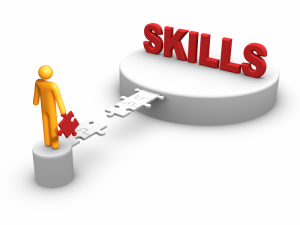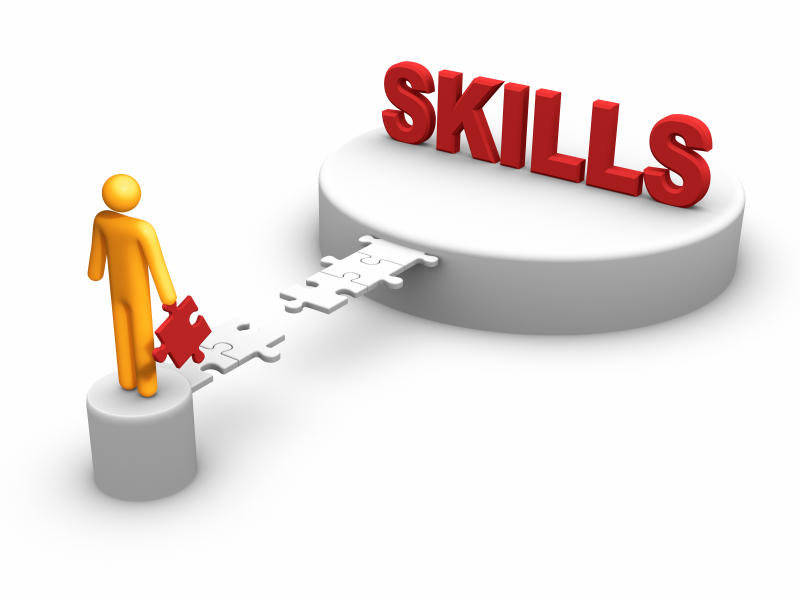 Employers say they can’t get enough skilled labour. Further and Higher Education institutions talk about embedding employability skills in the curriculum. On a personal level, what does being skilled mean to you?Have you identified the skills you have and the skills you need to stand out in your job search or in your current profession? Are there any gaps or are are you skilled to kill? In this article, Dr Nadia Anwar discusses the term ‘skills’ and the importance of skills training.
Employers say they can’t get enough skilled labour. Further and Higher Education institutions talk about embedding employability skills in the curriculum. On a personal level, what does being skilled mean to you?Have you identified the skills you have and the skills you need to stand out in your job search or in your current profession? Are there any gaps or are are you skilled to kill? In this article, Dr Nadia Anwar discusses the term ‘skills’ and the importance of skills training.
Skills come both naturally and through training. They are the weapons of power with which you can make a long lasting impression on the highly demanding job market and influence people who play a significant role in your success. Although present in all, most of the time, skills need to be acknowledged and recognized by a person so that they could be appropriately demonstrated in his/her private and public life. However, what are these skills and how are they acquired still generate confusion in potential candidates and hiring agencies.
Skills function as a measuring tool to judge someone’s ability or the degree of efficacy in performing a task.
However, a significant key to understanding any process that involves an interaction designed to assess someone’s ability in any field or aspect of life is to place the concerned person in the context and environment in which s/he is being judged. Not only that, the context also needs to be accommodated by tailoring the skills according to its demands.
Before I embark on a discussion regarding the significance and utility of skill-based training, let me give my readers an overview of types in which skills are generally classified. Broadly speaking, there are three types of skills that a person needs to survive, sustain and succeed in both personal and public life: Transferable (also called functional, portable or inter-personal skills); Personal (sometimes termed as soft skills); and knowledge-based or job-specific (also called hard skills). Although soft skills are less tangible than hard skills, an individual demonstrates a blend of both in life.
There are three types of skills – Transferable, Personal and Knowledge-based.
Transferable skills are related to the actions and activities carried out to perform a task or become functional in different contexts with the aim of eliciting specific outcomes. These skills are called transferable because once acquired and practiced, they can be transferred or used in different industries and work places in various contexts. Since a lot depends on an individual’s aptitude and ability to demonstrate the ‘doing’ function, these are verbal skills involving different kinds of interactions and engagements. The ability to adapt, satisfy, negotiate, manage, decide, communicate, initiate, analyse, anticipate, organize, meet expectations, and take responsibility are the skills which if well-honed by both employers and performers can enrich the working environment and create relationships based on mutual respect and understanding.
Personal qualities are inevitable in the successful and positive outcome of a job or a research process and to operate successfully in any learning or working environment. Intra-personal or soft skills revolve around an individual manifesting his/her behavioural and attitudinal side of their personality. They give soul to our corporeal existence. The interaction in the case of these skills happen between the mind and the body thus making one responsible for one’s actions and reactions. Qualities such as self-esteem, confidence, patience, clarity in communication, showing understanding, emotional balance, and relationship building all come within the fold of personal skills.
Knowledge-based skills or research skills refer to those specialized skills that a person acquires through education and training in specific institutes with specific objectives in mind. On-the-job experience and academic environments also help in polishing these special skills and making them a person’s area of expertise. Compared to functional skills, these skills are mostly expressed in nouns such as administration, marketing, managing, communication and technical writing that mainly depend on certain areas and fields.
In this active and competitive entrepreneurial job market plenty of talk centers around finding choice person-specific and inter-personal skills in an individual. Skills training help you demonstrate your efficacy in the research field and prepare you for your future career. No matter what path you want to follow – academic or non-academic – these skills work in all contexts and can be adjusted and made flexible and stretchable according to the demands of the situation.
From the point of view of experienced academics, graduate employers and current researchers, training in a broad range of skills is inevitable to progress well in professional life. It is important to underline the importance of skills based training at the start of a doctoral program or a career. There should be a sound system in place to diagnose the relevance and utility of each training workshop according to the individual capacity and need of a student or employer.
Skills-based training allows researchers to extract the most from their studies or research and identify those areas of personal and academic development which require improvement. One can never be too busy in the research as not to provide oneself room to set out some time for such activities and training workshops. Your experience, advanced and successful position in your institute and profession do not guarantee perfection. The effectiveness of any research or assignment relies heavily on the external influences that shape one’s overall behavior and approach towards life. I am of the opinion that one is never too old to close doors on interactive and knowledge based learning.
Dr Nadia Anwar completed her PhD in Nigerian drama from The University of Northampton, UK. She is an Assistant Professor in the Department of English Language and Literature at the University of Management and Sciences, Lahore.
If you enjoyed reading this article, please share and subscribe to our network! Find more information on identifying and developing your skills. If you have an article you would like to share with our readers, please get in touch – info@aspiringprofessionalshub.com.
